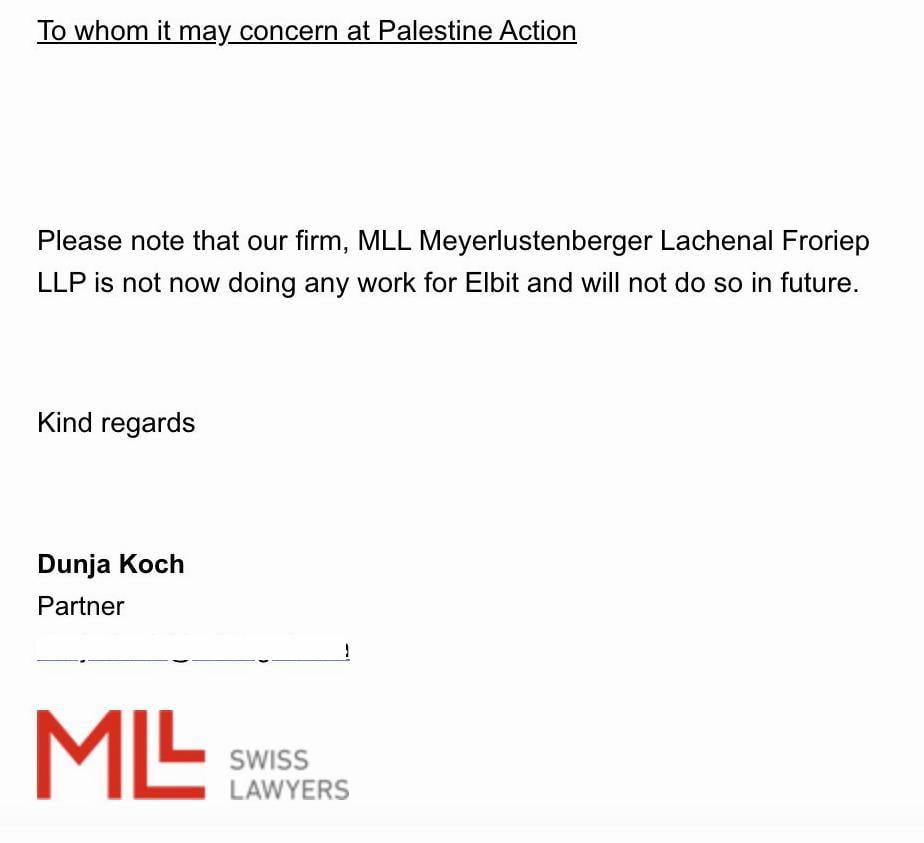The Autumn of 2015 and the election of Jeremy Corbyn as Labour Party leader was as much of an earthquake for the anarchists as it was for what is now known as the “centrist tinge” of party politics.
As a movement, we had benefited somewhat from the years of Blair, Brown and Miliband. Our street activity made big strides forward in the ’90s and early 2000s before falling back, but even after that we were able to make an easy argument that Labour was merely shades of Tory in the way it thought, acted and produced policy.
With the ascent of an actual capital-L Leftist to the top job of Labour leader however this line was, at least temporarily, stripped away. We were back to more complex and difficult arguments around the ultimate limitations of reformist politics, and how the logics of representative democracy warp and shorten our horizons over time.
For those of us following party affairs the situation seemed cosmically unlikely from the start, and Corbyn’s success blindsided most of us.
The MP for Islington North is, from the anarchist vantage point, very much a known and limited quantity. Mostly a good egg, but the quintessential grandee of “cobweb leftism” who dreams of reinstituting the glory days of a Keynesian social-democratic Britain that a) never quite happened in the form he’d prefer to portray and b) rested on a foundation that no longer exists.*
Beyond that, the mix of Trots, Tankies and frequently problematic “anti-imperialists” who had spent previous decades backing such “socialist titans” as Bashir Assad or Colonel Gaddafi that he frequently rode with were a massive liability.**
His Parliamentary mates were similar. John McDonnell was smarter, but harsher and not as likeable. Diane Abbott was all over the place, from private-schooling her kids to public lauding of Chairman Mao. Dennis Skinner was an entertaining but sidelined grouch. They’d been taking turns for years to “put up a left voice” for leadership and been crushed on every occasion.
At best Corbyn represented a return to the ungainly plod of a back-to-basics Labour, but terminally stretched by internal divisions, with no workers’ power to underline policymaking and placed within a fully-entrenched form of aggressive neoliberal capitalism.
So what made things different this time?
There were some electoral factors, such as Ed Miliband’s voting rule changes, but in short, “time” was the biggest influence of all. Broadly, the working class had been on the back foot for more than four decades. Labour had been post-Kinnock centre-right for most or all of that period. The left’s last serious victory had been the Poll Tax, and things had gotten so bad that even welfare-baiting warmonger Tony Blair was initially heralded as a turn towards progressive politics.
Every “far” left tendency had been in decline for years, most notably the Leninists, while anarchist ideas, despite several surges in popularity, hadn’t resulted in a stable power base capable of offering a serious grassroots alternative.
For millions of socialists and vague/old leftists who had been relentlessly sidelined, a possibility of rebuilding the Labour Party left thus represented the only shaft of light in what had been a gloomy few decades. Many, if not most, of the people who shifted over, from Communist Party types to former Trots and reactivated old Labour activists, not to mention a number of anarchists, were speaking in terms of TINA — there is no alternative.
The most familiar refrain being offered to anarchists who stayed out of the new Corbynism was that people knew it was a sticking plaster approach, but even limited change was better than another decade of retreat. And maybe it would shift the tone of the national conversation. It was all about Momentum, so to speak.
Added to this was the nature of Corbynism itself, an appeal to socialism that through its initial stages revelled in malleable vagueness. Anarchist entrants, later unkindly referred to as “anarcho-Corbynistas” were offered a platform that gave them a nod and a wink on a host of issues from nuclear disarmament to mass migration and the environment.
And for the first year or two, it seemed as though the left might be onto something. Corbyn had a pretty blameless record as the only leadership contender to have led Stop The War and had years of pro working class, anti-bigotry activism on his CV. He was lent further street cred as the Tories and their allies went absolutely ballistic, accusing him of everything from IRA conspiracies to having Soviet gold in his pocket.
Leftists, particularly those young enough to have never known a time when Labour wasn’t run by the sort of scumbag who’d throw claimants under a bus to look “tough” on the non-issue of welfare cheating, were able to project almost anything on this besieged, part-formed entity. Through Momentum and gatherings such as The World Transformed many people were introduced to the hothouse of party political intrigue for the first time, and that surge in energy felt like change.
The result for anarchism was a notable draining of activists into reinvigorated Constituency Labour Parties, local organs of the organisation that had for years been little more than powerless cheerleading squads for the Parliamentary Labour Party.
In our chatrooms, social media and pub conversations this caused a mix of consternation, debate and sometimes, nasty arguments. Exactly how anarchists should respond to Corbyn was unclear and the spectrum of opinion went from outright hostility to him, through interest and engagement (more or less distant) with “where the class is”, to the opposite extreme of people denouncing their old viewpoints entirely and adopting the aggression of the recently converted.
What happens to fresh milk
Since that process in the 2015-17 period however, even with the added draw of defeating coups and the endless fascination of internecine battles to rely on, an iron rule of Parliamentary politics has come into play. Eventually the milk always turns sour.
With Corbyn this has been a faster process than perhaps could have been predicted, but it has nevertheless left plenty of room to accommodate that cliche of party political activism, the acceptance of policies which would once have been anathema in the name of a “larger goal”.
Certain elements of this decline from the heady heights of rebellious Corbynist principle were present almost from the start. Corbyn’s quiet acceptance of NATO after a lifetime of opposition to it took place as early as 2015, when he downgraded to an (easily buried) call for “debate”. Since then he has let slide on a wide range of former “red line” positions, from migration and Trident to taxation and Europe. Most of Labour’s policies today aren’t far removed from the party’s centre-left orthodoxy under Ed Miliband.
The logic, of course, is that it is better to jettison what you cannot win to make progress where you can. If Labour has to appease the public sphere’s migrant obsession by promising it won’t let them be used to “undermine working conditions”, well, any hurt caused will only be to non-voters. The important thing is that its overall electoral prospects aren’t dented, so eventually a (fiscally responsible) nationalisation or a (sensibly budgeted) tax rise can be pushed through here or there. Even if Corbyn himself is not personally in favour of such maths, they’re part of how the party must act in order to function.
It is the same logic which has driven every social democratic party since the 19th century, and which has in the 119 years since Labour was founded seen it progress from a call to overturn laws which were strangling trade unions while promoting massive nationalisation of industry to … a bit less than the same today.
Except now the TUC unions are increasingly zombie organisations, nationalisation can no longer be pretended to as a cure-all, and despite recent setbacks the agenda of the party right is still hugely influential. Blair-era staffers still hold the reins across much of the administrative machinery, and the grinding battle to replace them has put off many enthusiastic new faces. Labour’s famed Clause IV calling for the common ownership of industry for example, torched during the Blair years, seems unlikely to make a full reappearance.
And this settling into day-to-day realpolitik simply isn’t as sexy as “we’re taking over”, nor is it such a shiny prize for the far left when important principles are sloughing off the docket before a majority has even been secured.
What instead?
For anarchists, an important trend we may be starting to see is the beginnings of political drift. Anecdotally, more people are showing an interest in anarchism again, particularly in the absence of a Leninist left which has leapt in with both feet to try and Win for Corbyn and is weak on its own account.
The anarchist movement itself however is not in great shape. We’ve been poorly served by the last decade as we’ve only partially progressed in reconciling relatively new, influential ideals about fighting intersecting social oppressions with our far older base politics.
The collapse of our biggest annual gathering the London Anarchist Bookfair in 2017 highlighted deeply-felt disagreements which have been worsened by generational differences in how we engage with our politics. We have minimal resources to work with and a modern cohort seemingly primed to squabble rather than coalesce.
But the need for a grassroots resurgence is stronger than it has ever been. The single greatest failure of the Corbyn project in fact has been in the promises made during its initial recruitment drive — that throwing in for Labour and rebuilding community and worker power could be one and the same fight.
This was always a claim to side-eye, and the last four years have broadly seen, rather than a resurgence, a further decline in regular trade union activity and community rebellion. Some former activists have picked up council roles and found themselves administering cuts, waiting for the Promised Land of change at Westminster to arrive while mirroring the actions of the very people they used to oppose.
With a government which is the weakest-positioned in modern history, a ransacking of cities, public services and people’s working conditions by the rich continues. Buried has been homelessness, poverty, torn up safety nets, declining estates, healthcare crises.
Corbyn may ask his questions at PMQs, or even become Prime Minister himself, but what actually forces Westminster’s priorities is what happens out here, in the world beyond London SW1. Which is where anarchist thought shines. Standing for independent activity which doesn’t rely on politicians, for direct action to make things happen, and for ways of organising which don’t continually produce an elite of know-alls telling us to let them sort it out.
There are two key factors in our engagement with today’s political mess. First is that clearly popular engagement with Labour does not produce the sort of independent activism needed to directly challenge Tory misrule or bosses’ greed. Momentum was supposedly founded expressly to produce these outcomes and has mobilised nothing but door-knocking on election days.
Second is that there have been multiple examples of groups springing up and being effective which have happened despite Labour, rather than because of it. Base unions such as the UVW, IWGB, and IWW, aimed at protecting precarious workers left behind by the mainstream TUC, have been growing at a remarkable pace, and winning regardless of who occupies Number 10. Community and green action groups have made headlines and pushed policy change with little practical help from party brass.
There are green shoots of extra-Parliamentary activity to point to, and for all that we have limited resources there is a wealth of experience and history we can call on to inform and improve the next phases of a revival. The potential is here. The key will be in how we deal with the messy realities of mass rebellion.
The greatest waves of post-war anarchistic activity in Britain were the 1960s and around the Millennium. In the former, there was an attempt to focus anarchist ideas into federations, which often foundered through a lack of strategy and discipline. In the 1990s and 2000s the State, which had learned much about how to disrupt political movements in previous decades, intervened effectively to break up, repress and misdirect movements as they grew.
The lessons of those periods will be vital to learn and remember over the next phase of Britain’s political journey.
Rob Ray
* Exploiting the tail end of empire is no longer an option open to Britain, and its government no longer has enough economic or military heft to really stand up to the agendas of national and corporate superpowers. The trade unions and organised communities that once forced progressive policies were smashed in the 1980s and ’90s, while the neoliberal shift which accompanied that change affected the very logic of how society is collectively understood on a global level.
** It was this set’s extremely variable background on Palestine solidarity that later became weaponised as “Labour’s anti-Semitism problem”. While much of the related media campaign was overblown (and deeply hypocritical), unaddressed anti-Semitism embedded in the pro-Palestine left sometimes was, and still is, a troubling reality.








